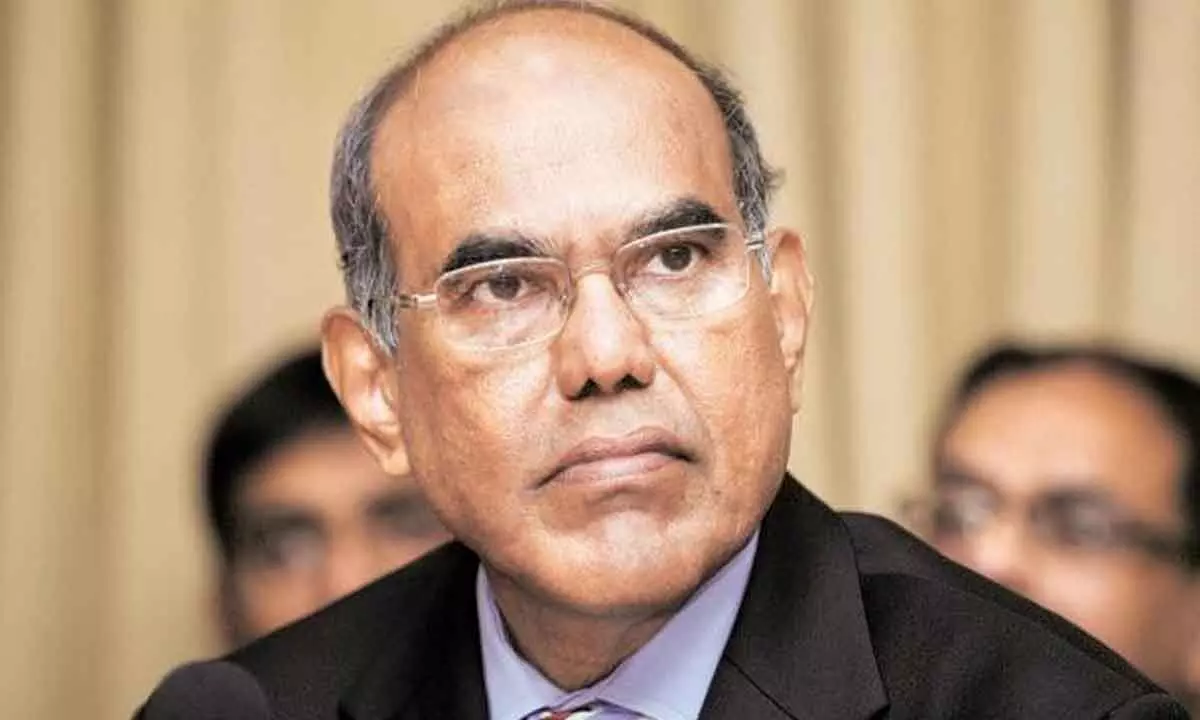Cong govt used to pressurise RBI to soften rates: Subbarao
Former RBI Governor in his new book recalls instances of govt pushing for higher growth projections and softer interest rates, compromising RBI’s credibility
image for illustrative purpose

Having been both in the government and in the RBI, I can say with some authority that there is little understanding and sensitivity within the government on the importance of central bank autonomy -Duvvuri Subbarao, former RBI Governor
New Delhi: The finance ministry under Pranab Mukherjee and P Chidambaram used to pressurise the RBI to soften interest rates and present a rosier picture of growth to shore up sentiments, recalled former RBI Governor Duvvuri Subbarao in his memoir.
In his recent book ‘Just A Mercenary? Notes from My Life and Career’, Subbarao also wrote that there is ‘little understanding and sensitivity’ in the government on the importance of the central bank’s autonomy. “Having been both in the government and in the RBI, I can say with some authority that there is little understanding and sensitivity within the government on the importance of central bank autonomy,” he said in the book.
Subbarao was finance secretary (2007-08) before taking over as the governor of the RBI for five years on September 5, 2008, a few days before the breakout of the Lehman Brothers crisis. Lehman Brothers crashed into bankruptcy on September 16, making it the biggest corporate failure in history.
In a chapter titled ‘Reserve Bank as the Government’s Cheerleader?’, Subbarao recalled that pressure by the government was not confined to the Reserve Bank’s interest rate stance. On occasion, it extended to pressuring the RBI to present rosier estimates of growth and inflation at variance with our objective assessment.
“I remember one such occasion when Pranab Mukherjee was the finance minister. Arvind Mayaram, the finance secretary, and Kaushik Basu, the chief economic adviser, contested our estimates with their assumptions and estimates, which I thought was par for the course,” he wrote.
What upset him, Subbarao said, was that almost seamlessly the discussion moved from objective arguments to subjective considerations, with suggestions that the Reserve Bank must project a higher growth rate and a lower inflation rate in order to share responsibility with the government for ‘shoring up sentiment’.
“Mayaram went to the extent of saying in one meeting that ‘whereas everywhere else in the world, governments and central banks are cooperating, here in India, the Reserve Bank is being very recalcitrant,” he recalled. Subbarao said he was invariably discomfited and annoyed by this demand that the RBI should be a cheerleader for the government.
“It also dismayed me that the Ministry of Finance would seek a higher estimate for growth while simultaneously arguing for a softer stance on the interest rate without seeing the obvious inconsistency between these two demands,” he wrote.
The former RBI governor pointed out that he used to take a firm position that the Reserve Bank cannot deviate from its best professional judgement just to doctor public sentiment. “Our projections must be consistent with our policy stance, and tinkering with estimates for growth and inflation would erode the credibility of the Reserve Bank,” he noted.
Subbarao also observed that it is interesting, even somewhat comforting, that these tensions between the government and central bank are not unique to India or emerging economies as they play out in rich countries as well. He also recalled that he had run-ins with both Chidambaram and Mukherjee on the RBI’s policy stance as both of them invariably pressed for softer rates although their styles were different.
“Chidambaram typically argued his case like the lawyer that he so eminently is, while Mukherjee was the quintessential politician,” Subbarao wrote.
Mukherjee let his view be known and left it to his officers to argue his case, he said, adding that “the net result was an uncomfortable relationship”.
The former RBI governor recalled that in October 2012, shortly after Chidambaram returned as finance minister from the Home Ministry, he set about in earnest to reverse the fiscal profligacy of the Mukherjee regime, possibly to compensate for the fiscal tightening he was embarking on.

